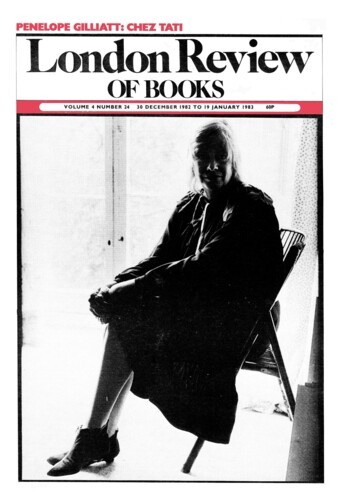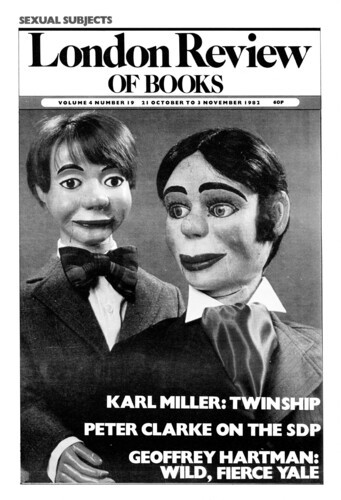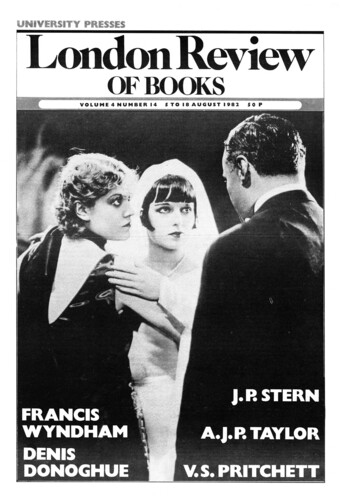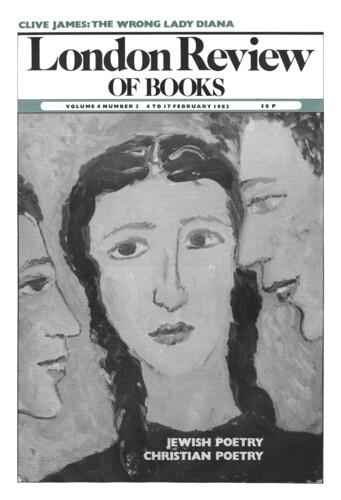Why this reviewer for Harewood’s autobiography? Despite extreme dissimilarities, the two of us share utterly unrelated, central preoccupations – music and football, with football, too, being drawn into our professional lives. The difference is that whereas I – a born musician with an infantile passion for football – insist on the lack of relation to the extent of avoiding musical metaphors in my writings on football and footballing metaphors in my musical writings and teaching, Harewood actually attempts to integrate his heterogeneous passions, at least theoretically.
The Tongs and the Bones: The Memoirs of Lord Harewood
Weidenfeld, 334 pp., £9.95, October 1981, 0 297 77960 5
Putting the Record Straight: The Autobiography of John Culshaw
Secker, 362 pp., £8.50, November 1981, 0 436 11802 5
Dietrich Fischer-Dieskau, Mastersinger: A Documented Study by Kenneth Whitton. Why this reviewer for Harewood’s autobiography? Despite extreme dissimilarities, the two of us share utterly unrelated, central preoccupations – music and football, with football,...




